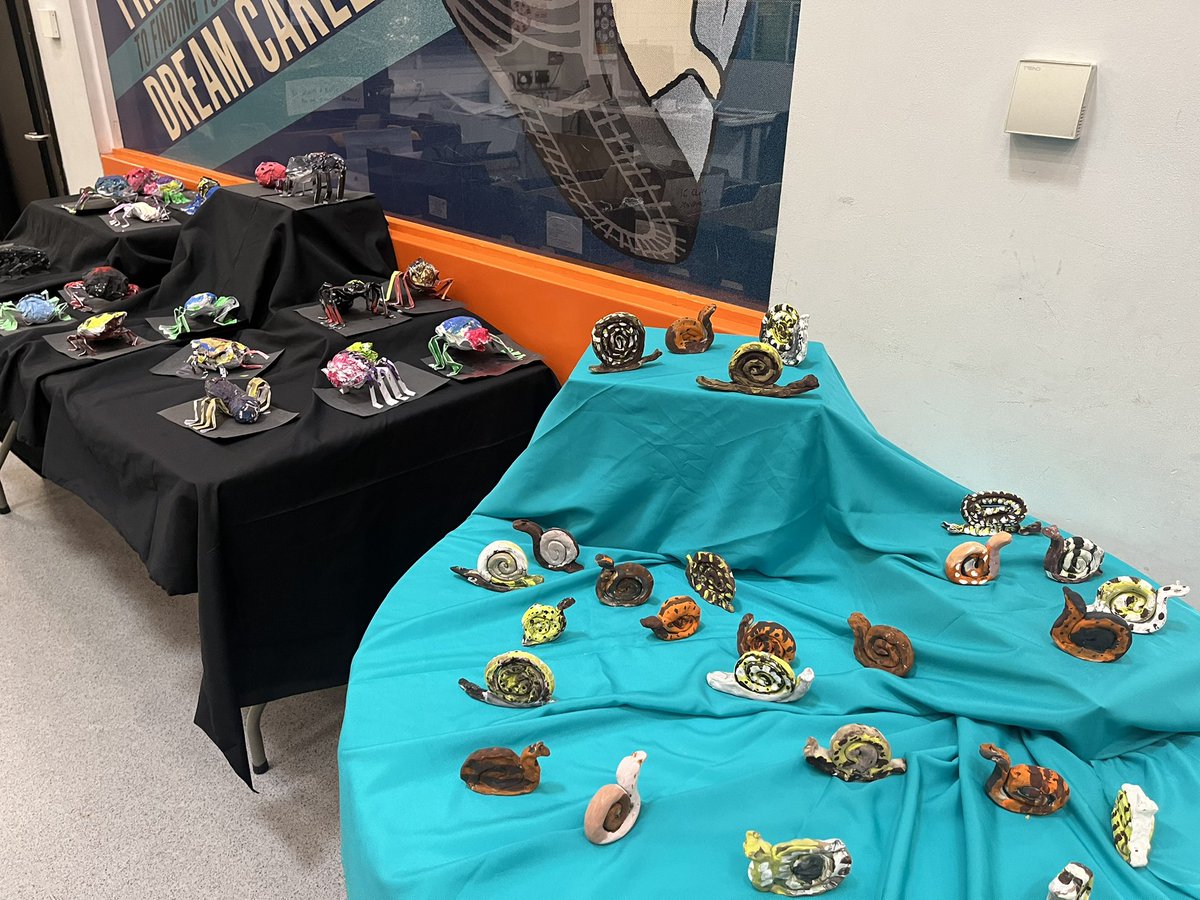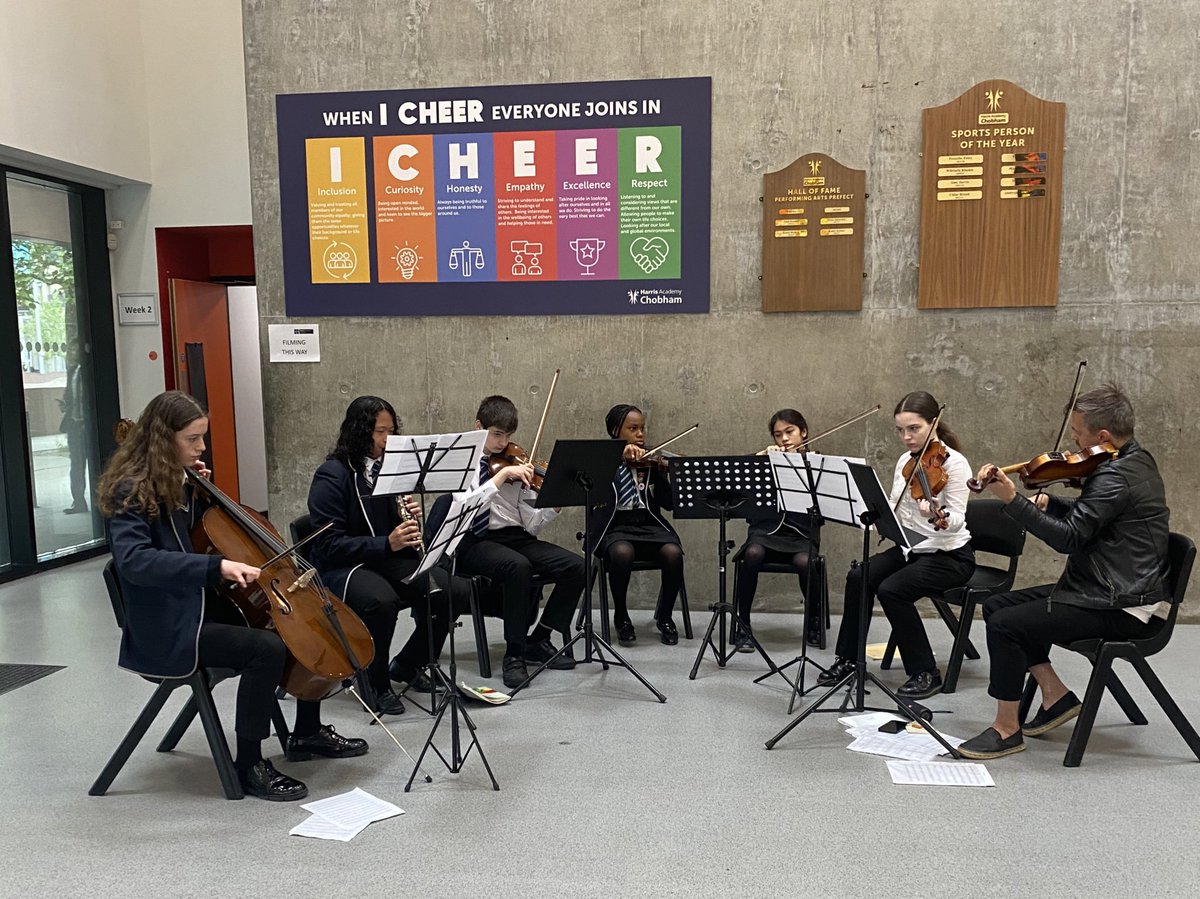Our Curriculum
Many of our key curriculum aims for Sixth Form are similar to the principles to be found lower down the school. These have however been adapted to take particular account of the learning needs and aspirations of Sixth Form students:
- Sixth Form students will follow an A Level or vocational pathway. Prospective Sixth Formers will be directed on the most appropriate pathway for them depending upon their GCSE results. Students will need to meet Chobham’s qualifying grade criteria for whatever pathway they choose to follow.
- All students who did not achieve a Grade 4 or higher in English or maths at GCSE required to continue studying an appropriate qualification. Achieving a level 2 qualification in both maths and English helps students to progress to further study, training and skilled employment. At Harris Academy Chobham, we ensure all 16 to 19 year olds who did not achieve a Grade 4 or higher in English or maths have the best chance of achieving this standard and get the necessary support to do so.
- Once having selected the most appropriate qualification pathway students will be supported in making the subject choices which are best suited to their talents and future ambitions. Even within the constraints of the narrower post 16 pathways, we ensure that students have a wide subject choice. A full list of the subjects available for post 16 study appears below.
- Students are supported in ensuring that their subject choices make for logical combinations and that, wherever possible, there is appropriate breadth to their curriculum.
- As well as the academic curriculum delivered through lessons the school is very aware of the value of PSHE, Citizenship and careers education. These form an integral part of our education through our half termly Innovation Days and through tutor time as well as in lessons whenever appropriate.
- Enrichment is an integral part of our curriculum on two days each week. Enrichment classes are a compulsory element of each student’s timetable and they give students an opportunity to extend their learning beyond the normal curriculum, increase their cultural capital and develop interests which will hopefully last a lifetime.
- The concept of the wider curriculum is embedded at Chobham. We believe that learning at school incorporates everything the students do between leaving home in the morning and returning in the evening. This includes the way the students build relationships, how they move around the school buildings and how they conduct themselves at breaks and lunchtimes.
- Homework forms part of every subject’s curriculum and we expect students to complete homework conscientiously. Each department has an hour of lesson study timetable for sixth form students.
- The effective and principled use of technology is built into our curriculum as a theme running across all lessons and other curriculum activities. We want Chobham students to be competent users of IT equipment and software who also understand the opportunities and potential perils presented by the internet and social media.
- Throughout the Chobham curriculum, we wish to encourage the development of key learning skills. Foremost among these are resilience, independent organization, problem-solving and inculcating a love of learning.
- Hopefully, this website will answer many of your questions on the Chobham curriculum.
However, if any questions remain, please address them in the first instance to i.bitlice@chobhamacademy.org.uk
The Moral Dimension and Citizenship
There is a strong moral dimension to the curriculum at Chobham. We believe that there are beliefs and behaviors which our school should seek to inculcate and develop in our students in order that they may become active and happy citizens. As such beliefs can often provoke discussion if not disagreement, it is important to us that all members of the Chobham community are clearly aware of what the Academy stands for and therefore able to express informed views on our practice if they so desire.
The values central to our world outlook at Chobham are based upon the aspiration that all of our students should become global citizens, content with their place in the world and successful in their families, friendships, careers and communities. Foremost amongst the beliefs which support this ambition are:
- That all of our students learn to value democracy and the fundamental freedom of human expression
- That other core freedoms (for example in worship, relationships and political views) are equally respected
- That our students embrace, celebrate and will protect the diversity of local, national and international communities
- That our students will seek to always treat others as they would be treated themselves
- That our students always listen and seek to see other points of view
- That our students understand the threats to their natural environment and seek to challenge them
The enactment of our belief system is most visible in the relationships between students and staff across the school and the example given to students by staff. Our sixth formers are also very aware of their responsibility in setting a moral example to younger students through their behaviour and the attitudes they display.
The Chobham curriculum has been designed to enable students to reflect on the themes outlined above. Across all of our academic subjects, teachers will encourage students to reflect more widely on issues arising and their relevance to the world around us. The curriculum has many opportunities for students to think, talk and write about topics which, as well as furthering their general education, have particular relevance to their local circumstances.
The moral dimension of our curriculum is further enhanced by those aspects of the curriculum which extend beyond academic lessons. Each half term we have an Innovation Day which allows students to explore themes relating to morals and active citizenship in greater depth. This includes activities which introduce students to aspects of our democratic system and also visitors from a range of faith backgrounds. Through our daily tutorial structure, students are encouraged to learn about and reflect upon key issues in our society (such as crime, drugs and the use of social media). They are then given the opportunity to discuss the moral dimensions of these issues and guided in developing their own views. One day each week is spent discussing a current affairs topic in tutorial. This assists students in developing their own perspectives on national and international issues.
Our weekly assemblies are also an important part of the Academy’s systems for developing the thinking and attitudes of our students. Every student is involved in a house or year group assembly each week. These assemblies discuss a moral theme for the week which is also addressed in tutor time. At the end of every assembly, students are given time for prayer or silent reflection.
In combination, these systems and practices help us in developing Chobham students to develop into the active and thoughtful citizens we hope for them to become. All of our curriculum content is constantly under review and will respond to new ideas, national and international events and changing student needs.
Chobham Post 16 Subjects
A Levels:
- Art/Graphics Communication
- Biology
- Chemistry
- Economics
- English Literature
- Film Studies
- Geography
- History
- Mathematics
- Physics
- Psychology
- Religious Studies
- Sociology
- Spanish
- Theatre Studies (Drama)
CTEC – 3 A Level equivalent
- Business Studies
- Sport
Chobham Academy Sixth Form Entry Criteria
A Levels Pathway
Choose three A-level subjects below
Five GCSE grades 9-6 with grade 5 in English language and mathematics.
It is possible to study economics, history, geography, psychology or sociology in Year 12 if the subject was not studied at GCSE. Enrolment on these courses will be at the discretion of the Academy.
All students are enrolled at the discretion of the leadership team and individual results will be discussed as part of the enrolment process on GCSE results day.
|
|
English language |
Mathematics |
Other |
Exam Board |
|
Art & Design |
5 |
5 |
6 in art & design GCSE or design related GCSE |
Edexcel |
|
Biology |
* |
* |
* |
OCR |
|
Chemistry |
* |
* |
* |
AQA |
|
Drama |
6 |
5 |
A grade 6 in GCSE Drama.
If studying without GCSE drama, a grade 7 or above in English if studying without GCSE drama |
Edexcel |
|
Economics |
6 |
6 |
|
Edexcel |
|
English Literature |
6 |
5 |
6 in English literature GCSE |
Edexcel |
|
Further Maths |
5 |
9 |
8 in Physics |
OCR MEI A |
|
Geography |
6 |
6 |
|
OCR |
|
History |
6 |
5 |
|
Edexcel |
|
Mandarin |
5 |
5 |
B in Mandarin GCSE |
Cambridge Pre-U |
|
Mathematics |
5 |
8 |
|
OCR MEI B
|
|
Media Studies |
6 |
5 |
|
Eduqas |
|
Music |
5 |
5 |
6 in music or grade 5 ABRSM in instrument and grade 5 ARSBM in music theory |
Eduqas |
|
Physics |
* |
* |
* |
AQA |
|
Psychology |
6 |
6 |
|
AQA |
|
Religious Studies |
6 |
5 |
|
Eduqas |
|
Sociology |
6 |
5 |
|
AQA |
|
Spanish |
5 |
5 |
6 in Spanish GCSE or home language Spanish/Portuguese or other romance language |
AQA |
|
*A level science combination |
Double science GCSE |
Biology GCSE |
Chemistry GCSE |
Physics GCSE |
Maths GCSE |
English language GCSE |
|
Single biology |
7, 7 |
7 |
7 |
6 |
7 |
6 |
|
Single chemistry |
7, 7 |
6 |
7 |
6 |
7 |
6 |
|
Single physics |
7, 7 |
6 |
6 |
7 |
7 |
6 |
|
Biology & chemistry |
8, 7 |
7 |
7 |
6 |
7 |
6 |
|
Chemistry & physics |
8, 7 |
6 |
7 |
7 |
7 |
6 |
|
Biology & physics |
8, 7 |
7 |
7 |
7 |
7 |
6 |
|
All three sciences |
8, 8 |
7 |
7 |
7 |
7 |
6 |
Vocational Pathway
Choose one of the four vocational qualifications below
Five GCSE grades 9-4
|
|
English language |
Mathematics |
Other |
|
Cambridge Technical Business Level 3 Extended Diploma (1080 guided learning hours) |
4 |
4 |
|
|
Cambridge Technical Sport and Physical Activity Level 3 Extended Diploma (1080 glh) |
4 |
4 |
|
Please note that courses are run at the discretion of the Academy and the Academy reserves the right to remove courses if there is not the demand.

















